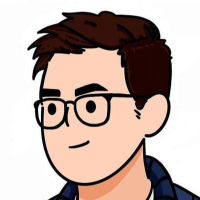第一次尝试自媒体作品
from HBO’s Bet On ‘Harry Potter’ Faces Three Big Questions
The closer you look at HBO's TV series adaptation of J.K. Rowling's fantasy novels and its criticisms, the more it seems like this show has all the ingredients to silence its doubters.
The single most elusive Hollywood entertainment commodity is a sure thing; a title that somehow generates an absolute certainty of success. Some say this doesn’t exist (Warner Bros., after all, was probably extremely confident when it greenlit Joker 2). Yet there is an upcoming TV show that is arguably a sure thing, or the closest we’ll likely ever see to one — Warner Bros. Discovery’s biggest IP bet, HBO‘s Harry Potter, which earlier this week announced its core adult cast. Yet there are also three big hurdles that observers have wondered about, which we’ll get to shortly.
Harry Potter will reimagine J.K. Rowling’s seven fantasy novels, which have sold more than 600 million copies worldwide, and its eight movie adaptations have cumulatively grossed $7 billion-plus. Each season will cover one of the seven books, with Succession writer Francesca Gardiner as showrunner and Game of Thrones veteran Mark Mylod directing several episodes.
The cast includes six-time Emmy winner John Lithgow as the wise and mysterious Hogwarts professor Albus Dumbledore, Ozark scene stealer Janet McTeer as professor Minerva McGonagall, Shaun of the Dead’s Nick Frost as the lovable half-giant Hagrid and, in a diverse casting twist, Paapa Essiedu (I May Destroy You) as the sneering Potions Professor Severus Snape. The production has also reviewed a mind-boggling 32,000 audition tapes for the roles of 11-year-olds Harry, Ron and Hermionie, with those castings still to come.
The wisdom of the project (which may bow on Max in either 2026 or 2027) has drawn debate, particularly around three questions.
The first: Will people want to watch a TV version of movies that are barely two decades old? Very likely yes. There’s an enormous amount of content in the books that wasn’t included, or was drastically abbreviated — especially once you get past the first two books, which are much shorter than the others. The films often have a feeling of hurried intensity (Dumbledore’s out-of-character shouting of “Harry, did you put your name in the Goblet of Fire?!” being the most frequently meme-able example), while the books have a pace that’s far more suited to series television and contain reams of sparkling conversation between Harry, Ron and Hermione that was utterly lost from the films.
The second: The Fantastic Beasts film franchise eventually flopped and Amazon’s The Lord of the Rings: The Rings of Power has struggled with fans (though Amazon maintains the latter’s streaming numbers are very strong). Warner Bros.’ three-film Harry Potter-inspired series and Prime Video’s LoTR show might seem like very different projects to cite here, but both were attempts to expand beloved fantasy novels that had already been successfully adapted into something rather new and different. Both had (or in the case of Rings of Power, have) the same struggle: They were prequels based on a thin amount of source material rather than a beloved story with a narrative and characters that had already been proven to work. People tend to love the thing (The Lord of the Rings, Harry Potter) and these offered fans “the story before the thing.” HBO’s Harry Potter doesn’t have this problem.
The third, and most sensitive: Will viewers watch a show that creator J.K. Rowling — with her controversial anti-trans views — is executive producing? This is, obviously, a rather divisive question. But the answer seems to be yes. Just look at the 2023 Hogwarts Legacy game, which faced boycott calls due to Rowling, yet was that year’s top seller (HBO chief Casey Bloys has likewise pointed to the game’s success when asked about Rowling by reporters). And the film franchise has remained hugely popular: Per one researcher, the 1999 film, Harry Potter and the Sorcerer’s Stone, was watched 40 million times globally on Max just last year. Bottom line is that people love this story and seem to have no problem separating the art from the artist on this one. (Regardless of your view on the trans debate, it is difficult to square the voice that wrote the books — so imaginative, warm, clever, witty, empathetic and humane — with the voice of Rowling’s X account — so singularly focused, combative and sarcastic. This isn’t making making a political judgement, but remarking about authorial voice — Stephen King, even when tweeting about politics, still more-or-less sounds like Stephen King).
All of which puts HBO in a rather strong position while already being in a strong position lately — with The White Lotus season three earning series high ratings, freshman medical drama The Pitt breaking out and The Last of Us returning for season two to higher numbers.
Theoretical pitfalls exist, of course. The Potter series could face backlash if it’s perceived as looking and feeling cheap compared to the films (this is not the project on which to cut corners). Fans could create a Snow White-esque controversy around diverse castings (there’s already some huffing and puffing, if not Hufflepuff-ing, about Essiedu). While the confirmed adult actors are pros, casting kids is always a gamble, and their chemistry is key to the story’s charm.
But otherwise, Rowling’s novels provide such a detailed road map (the full story is 3,407 pages long), one already been proven endlessly to work, that it would take a real concerted effort to turn Harry Potter into a less-than-sure thing. No pressure, HBO.
This story first appeared in the April 16 issue of The Hollywood Reporter magazine. To receive the magazine, click here to subscribe.
